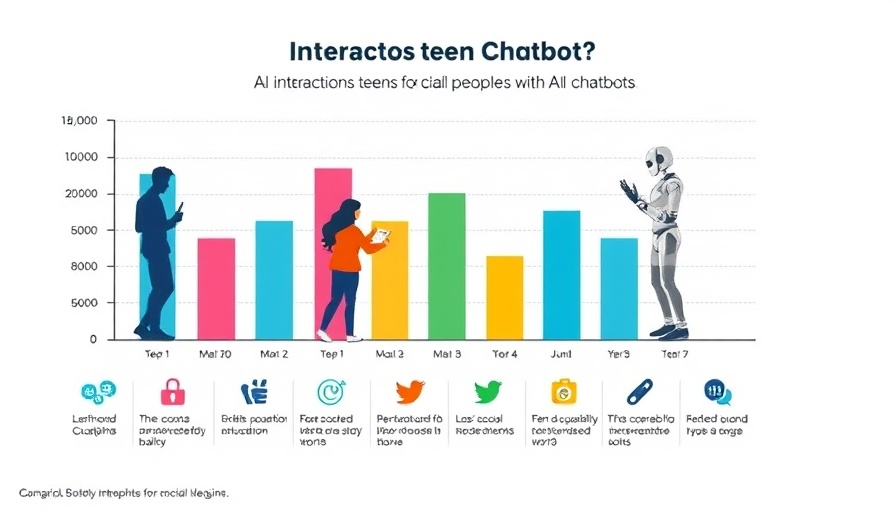
Is ChatGPT Redefining Digital Engagement?
In an era where technology evolves at lightning speed, few developments have captured the imagination as profoundly as ChatGPT. The numbers tell a compelling story: April 2025 showed a 13% increase in traffic for ChatGPT.com, even as established internet giants like Google and YouTube witnessed a drop in engagement. This trend raises important questions about how digital tools shape consumer behaviors and preferences, especially for business owners looking to adapt.
Understanding the Traffic Shift
The landscape of web traffic has changed significantly, with analytics from SimilarWeb highlighting a remarkable contradiction. While ChatGPT's user base expands, platforms previously considered pillars of online traffic, such as Wikipedia and Twitter (now rebranded as X.com), are facing declines of 6.1% and 5.2%, respectively. This discrepancy suggests a shift in how users find information and interact with digital content.
The Power of First-Mover Advantage
As noted by Visual Capitalist, ChatGPT's success can largely be attributed to its early entry into the market of conversational AI tools. Unlike its competitors, ChatGPT was not just another AI model; it created a user-friendly platform that democratized access to advanced technology. This first-mover advantage has positioned it at the forefront of discussions around artificial intelligence and digital tools, making it a must-watch for business owners and marketers alike.
ChatGPT’s Impact on Marketing Strategies
The implications of this traffic shift extend beyond raw analytics; they require businesses to rethink their marketing strategies. As consumers become more inclined to engage with AI-driven platforms for information and assistance, companies may need to consider how they can leverage these tools effectively. This leads to questions about integrating AI into existing marketing frameworks and how it could transform customer engagement.
Potential Counterarguments: What About Other AI Tools?
While ChatGPT currently enjoys significant popularity, it's essential to acknowledge that other AI tools are improving and have begun to offer compelling alternatives. Businesses might ask whether the growing capabilities of competitors like Google’s Bard or other machine learning applications could overshadow ChatGPT's dominance. However, for many users, ChatGPT's established reputation as a reliable information source provides it a significant edge.
Looking Ahead: The Role of AI in Consumer Behaviors
As businesses evaluate their growth strategies, the rise of ChatGPT serves as a critical case study. It opens discussions on the future trends of AI, forecasting that consumers will likely shift towards platforms that not only provide information but also foster meaningful engagement. Understanding the implications of AI’s growth in the digital ecosystem is crucial for developing effective strategies for client acquisition and retention.
Learn and Adapt: The Value of Insights
For business owners, harnessing the insights from these trends is invaluable. Engaging with AI tools like ChatGPT can facilitate understanding customer preferences while providing innovative ways to serve them. New AI applications can reveal patterns in user behavior, enabling businesses to tailor their offerings while maximizing client satisfaction.
In light of these trends, it's essential for business owners to stay informed and proactive. Embracing the advances in digital technology not only equips them with competitive advantages but also helps ensure sustainable growth in ever-evolving markets.
 Add Row
Add Row  Add
Add 




Write A Comment